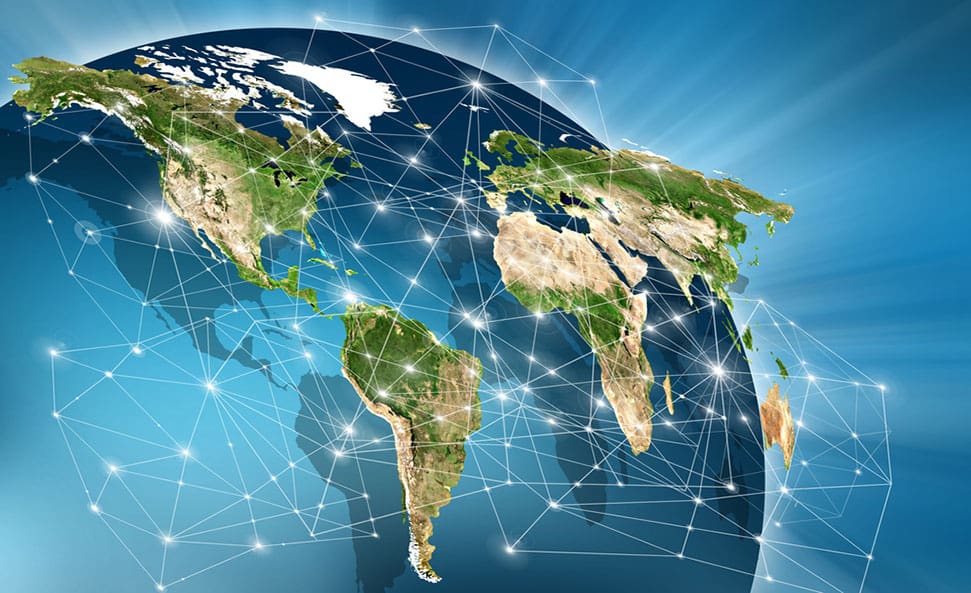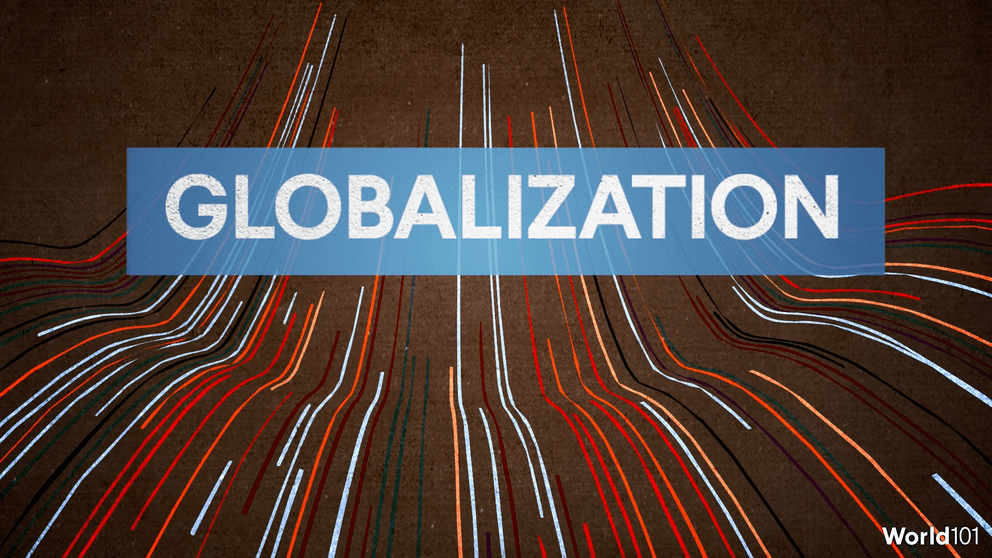Business
8 Ways Technological Advancement Is Shaping Our Future


The rapid pace of technological advancement has undeniably altered the course of our future in numerous ways. From the widespread diffusion of innovative technologies to the transformative impact of automation, the landscape of our society is being shaped by these advancements.
The interconnectedness facilitated by internet access, the unprecedented scale of information sharing, and the influence of social media have redefined human interaction and communication.
Meanwhile, the rise of e-commerce and the integration of artificial intelligence are revolutionizing industries and job markets.
However, amidst these promising developments, the looming threat of cybersecurity vulnerabilities poses a critical challenge.
These eight ways in which technological advancement is shaping our future not only reflect the current state of affairs but also hint at the myriad possibilities that lie ahead.


Key Takeaways
- Technological advancements have led to the creation of new markets, the transformation of industries, and new economic opportunities.
- Internet and global connectivity have bridged geographical and cultural gaps, empowering individuals in education, healthcare, and economic development.
- Digital inclusion and accessible information are crucial for driving innovation, economic growth, and societal equity.
- Automation and artificial intelligence are revolutionizing industries, altering the job market, and creating new opportunities, but they also require proactive management to address social and economic implications.
Innovation Diffusion
As technological advancements continue to reshape our world, the process of innovation diffusion plays a crucial role in determining the pace and impact of these changes on society and the economy. Innovation diffusion refers to how new technologies, ideas, and practices spread and are adopted within a society or industry. Understanding this process is essential in anticipating the broader societal and economic effects of technological advancements.
Innovation diffusion is a complex and dynamic phenomenon that is influenced by various factors such as the perceived benefits of the innovation, compatibility with existing practices, ease of use, and the presence of supporting infrastructure. As technology continues to advance at a rapid pace, it is crucial to study how these factors interplay and evolve. Additionally, the diffusion of innovation often leads to the creation of new markets, the transformation of existing industries, and the emergence of new economic opportunities.
As we look to the future, understanding the intricacies of innovation diffusion will be paramount in ensuring that the benefits of technological advancements are equitably distributed and that society as a whole can harness the full potential of these innovations.
Internet Access
Internet access has become the cornerstone of global connectivity, enabling individuals and communities to bridge geographical and cultural gaps.
As we move forward, digital inclusion through widespread internet access will be crucial in ensuring that no one is left behind in the digital revolution.
Accessible information, made possible by internet connectivity, will continue to empower individuals and drive progress in education, healthcare, and economic development.
Global Connectivity
The exponential growth of global connectivity has revolutionized the way individuals, businesses, and societies interact and operate, propelling us towards an era of unprecedented interconnectedness and opportunity.
The widespread availability of internet access has led to a more level playing field, offering freedom of information and communication to people worldwide. As technological advancements continue to bridge the digital divide, the potential for global collaboration and innovation is boundless.
However, it’s essential to address the challenges of ensuring equitable access to the Internet for all, as this is crucial for fostering inclusive growth and progress. Embracing global connectivity not only empowers individuals but also paves the way for collective advancement, shaping a future where borders are transcended, and opportunities are abundant.
Digital Inclusion
Amidst the rapid digitization of society, equitable access to digital resources and networks has become a defining factor in shaping the future of global connectivity and progress. The current state of digital inclusion is a crucial element in ensuring that all individuals have fair and equal access to the opportunities presented by the digital age.


In this context, it is essential to consider the following:
- Infrastructure Development: Expansion of broadband infrastructure to underserved areas is imperative for bridging the digital divide.
- Affordability and Accessibility: Ensuring that internet services are affordable and accessible to all socio-economic groups is vital for digital inclusion.
- Digital Literacy: Promoting digital literacy programs to empower individuals with the skills and knowledge needed to fully participate in the digital world.
Ensuring digital inclusion not only fosters societal equity but also drives innovation and economic growth.
Accessible Information
In an era characterized by rapid technological advancement, the seamless accessibility of information plays a pivotal role in shaping the trajectory of global connectivity and progress.
Access to the internet empowers individuals and communities, providing them with the freedom to seek knowledge, engage in economic opportunities, and participate in the global exchange of ideas.
As internet access becomes more widespread, it fosters inclusivity and diversity, enabling individuals from all walks of life to connect, collaborate, and innovate.


This democratization of information has the potential to bridge societal gaps, drive economic growth, and facilitate the spread of knowledge and ideas.
The increasing accessibility of information through the internet is not only a fundamental aspect of freedom but also a catalyst for societal advancement and a more interconnected world.
Automation Impact
Rapid advancements in automation technology are revolutionizing industries and reshaping the future of work, driving efficiency and productivity while also raising important questions about the impact on the labor force. The impact of automation on our future is profound, and it is crucial to consider how this technological evolution will shape our lives.
Here are three key points to consider:
- Changing Job Landscape: Automation is expected to significantly alter the job market, potentially displacing workers in certain industries while creating new opportunities in others. It is essential to proactively prepare the workforce for these shifts to ensure a smooth transition.
- Skill Requirements: As automation becomes more prevalent, the skills demanded in the job market will evolve. The workforce will need to adapt by acquiring new skills, such as programming, data analysis, and problem-solving, to remain competitive in the changing landscape.
- Social and Economic Implications: The widespread adoption of automation may lead to societal challenges, such as income inequality and job polarization. It is vital to address these potential consequences and develop strategies to mitigate negative impacts.
The impact of automation goes beyond mere technological advancements, influencing the very structure of our society and economy. As we embrace these changes, it is crucial to ensure that the benefits of automation are equitably distributed, allowing everyone to partake in the freedom and opportunities it offers.


Information Sharing
The paradigm shift towards increased information sharing is poised to redefine the dynamics of collaboration and innovation in the digital age. As we move forward, the flow of information will become more seamless and transparent, breaking down traditional barriers and silos. This shift will empower individuals and organizations to access and exchange knowledge more freely, leading to accelerated learning and problem-solving. With the rise of open data initiatives and collaborative platforms, the potential for collective intelligence to drive societal progress is unprecedented.
Furthermore, the democratization of information through social media, open-source projects, and online communities is fostering a culture of inclusivity and diversity in idea generation and decision-making. However, this trend also raises important questions about data privacy, security, and ownership. As we embrace the benefits of enhanced information sharing, it is crucial to establish ethical guidelines and robust governance frameworks to protect individuals and their rights.
In the era of information abundance, the ability to discern valuable insights from the noise will be a critical skill. Embracing a culture of responsible and purposeful information sharing will be essential in harnessing the full potential of this transformative shift.
Social Media
With the pervasive influence of social media on modern society, it has become imperative to critically examine its impact on information dissemination and societal dynamics.
Social media platforms have become the primary source of news and information for a large segment of the population, shaping public opinion and influencing societal trends.


- Amplification of Voices: Social media provides a platform for individuals and groups to amplify their voices and advocate for social change, leading to increased awareness and mobilization around important issues.
- Erosion of Privacy: The widespread use of social media has led to concerns about privacy and data security, as personal information is often shared and exploited without consent, raising questions about the ethical implications of such practices.
- Filter Bubbles and Echo Chambers: The algorithms used by social media platforms tend to create filter bubbles and echo chambers, where individuals are exposed only to information that aligns with their existing beliefs, potentially reinforcing polarized viewpoints and hindering constructive dialogue.
As we move forward, it is essential to address the challenges posed by social media while harnessing its potential for positive societal impact. This requires a balanced approach that safeguards individual freedoms while promoting responsible and ethical use of social media platforms.
E-commerce
Underpinning the evolution of commerce, the digital revolution has catalyzed an unprecedented shift towards e-commerce. This transformation has redefined the way businesses and consumers interact, purchase, and sell goods and services. The current landscape of e-commerce is characterized by rapid technological advancements, such as AI-driven personalization, virtual reality-enhanced shopping experiences, and seamless mobile transactions. These developments have not only enhanced the convenience and efficiency of online shopping but also elevated customer expectations.
Looking ahead, the future of e-commerce holds immense potential for further innovation and disruption. As technology continues to advance, we can anticipate the widespread adoption of augmented reality for immersive product visualization, the integration of voice commerce for seamless transactions, and the utilization of big data for hyper-personalized shopping recommendations. Additionally, the convergence of e-commerce with social media platforms is poised to create new avenues for social shopping and influencer-driven purchasing trends.
As e-commerce continues to evolve, it is imperative for businesses to embrace these technological advancements and adapt to the changing consumer behaviors. Embracing innovation and leveraging emerging technologies will be essential for staying competitive in the dynamic e-commerce landscape.
Artificial Intelligence
Predominantly driven by the rapid advancements in technology, Artificial Intelligence (AI) has emerged as a transformative force across various industries, revolutionizing the way tasks are performed and decisions are made. AI has the potential to significantly impact our future in the following ways:


- Enhanced Automation: AI is increasingly automating repetitive tasks, allowing humans to focus on more complex and strategic activities. This not only boosts efficiency but also enables employees to engage in more fulfilling and creative work.
- Predictive Analytics: AI’s ability to analyze vast amounts of data in real-time enables businesses to make more accurate predictions and data-driven decisions. This empowers organizations to anticipate market trends, customer behaviors, and potential risks, thereby gaining a competitive edge.
- Personalized Experiences: AI is enabling businesses to deliver personalized experiences to their customers, from tailored product recommendations to customized services. This not only enhances customer satisfaction but also fosters brand loyalty and long-term relationships.
As AI continues to advance, its integration into various aspects of our lives will undoubtedly shape the future, presenting both opportunities and challenges that require thoughtful consideration and proactive management.
Cybersecurity Threats
As technology continues to evolve, so do the threats posed by cybercriminals.
It is crucial to acknowledge the emergence of new cyber threats and their potential impact on businesses.
Understanding the importance of implementing robust cybersecurity measures is vital in safeguarding against these evolving threats in the digital landscape.
Emerging Cyber Threats
The landscape of cybersecurity is rapidly evolving, presenting a myriad of emerging threats that demand vigilant attention and proactive measures to safeguard digital assets and infrastructure. As technology advances, so do the capabilities of cyber threats. To address these emerging challenges, we must consider:


- AI-Powered Attacks: With the increasing use of artificial intelligence (AI) in cybersecurity, there is a corresponding rise in AI-powered cyber-attacks, where malicious actors leverage AI to create more sophisticated and targeted threats.
- 5G Vulnerabilities: The rollout of 5G technology brings unprecedented speed and connectivity, but it also introduces new security vulnerabilities that can be exploited by cybercriminals.
- Supply Chain Risks: As organizations rely on interconnected supply chains, they become susceptible to cyber threats targeting third-party vendors and partners, potentially leading to widespread disruptions.
Understanding and mitigating these emerging cyber threats is essential for ensuring a secure and resilient digital future.
Impact on Businesses
The evolving landscape of cybersecurity threats has profoundly impacted businesses, necessitating a strategic and adaptive approach to safeguarding critical digital assets and infrastructure. As technology advances, so do the techniques employed by cybercriminals, leading to an increase in the frequency and sophistication of attacks.
Businesses must continuously evolve their cybersecurity measures to mitigate risks and protect sensitive information. The interconnected nature of the digital world means that a breach in one area can have cascading effects on an organization’s operations, reputation, and bottom line.
Moreover, with the rise of remote work and cloud-based systems, businesses face new challenges in securing decentralized networks and endpoints. As such, proactive risk assessment, robust defense mechanisms, and ongoing employee education are crucial in building resilience against cyber threats.
Importance of Protection
Rapid technological advancements have underscored the critical importance of protection against cybersecurity threats in safeguarding organizations’ digital assets and operations. As we navigate the digital age, it is crucial to stay ahead of potential cybersecurity threats.


Here are three key points to consider:
- Evolving Threat Landscape: Cyber threats are constantly evolving, becoming more sophisticated and difficult to detect. It is imperative for organizations to stay updated on the latest threat intelligence and cybersecurity measures.
- Data Privacy Concerns: With the increasing amount of data being generated and stored, ensuring data privacy has become a paramount concern. Organizations must prioritize robust data protection measures to maintain the trust of their customers and stakeholders.
- Resilience and Preparedness: Establishing a strong cybersecurity posture and preparedness plan is vital to mitigate potential damages from cyber-attacks and ensure business continuity.
In a world reliant on digital infrastructure, protecting against cybersecurity threats is indispensable for ensuring the freedom and security of our digital future.
Frequently Asked Questions
How Can Individuals and Businesses Effectively Navigate the Ethical and Privacy Concerns Related to Artificial Intelligence and Information Sharing?
Navigating ethical and privacy concerns related to AI and information sharing requires a proactive approach. Individuals and businesses must prioritize transparency, consent, and data security. Establishing clear guidelines and ethical frameworks is crucial for responsible technological advancement.
What Are the Potential Long-Term Effects of Internet Access on Global Economic Inequality and Social Development?
The potential long-term effects of internet access on global economic inequality and social development are profound. While it can bridge information gaps and empower individuals, disparities in access and digital literacy may exacerbate existing inequalities.
How Do Cybersecurity Threats Impact the Future of E-Commerce and Online Business Transactions?
Cybersecurity threats have a profound impact on the future of e-commerce and online business transactions, akin to a shadow looming over potential growth. As technology advances, proactive measures and innovative solutions are essential to safeguarding digital commerce and ensuring continued economic progress.


What Are the Implications of Social Media on Mental Health and Interpersonal Relationships in the Age of Technological Advancement?
Social media’s impact on mental health and relationships in the age of technological advancement is profound. It requires nuanced examination to understand its implications fully and develop strategies to mitigate potential negative effects while harnessing its positive potential.
How Will Automation Impact Job Displacement and the Overall Workforce Landscape in the Coming Years?
As automation continues to advance, the workforce landscape will undoubtedly undergo significant transformations. Job displacement is a concern, but opportunities for upskilling and new roles will emerge, reshaping the way we work and interact with technology.


Hi, I’m Kyle Rivera, a news journalist and blog editor with the Daily Evening News. A TCU alum with a flair for storytelling, I spend my days uncovering impactful stories and my evenings exploring the realms of yoga, cycling, and whimsically bad poetry.
Travel is my escape; I’ve trekked from Tokyo’s neon lights to Iceland’s tranquil vistas. But no journey is complete without Mogli, my Golden Retriever, who’s redefining his breed standards in the most charming ways.
I love connecting with fellow travelers, yogis, cyclists, and anyone who enjoys a laugh at my poetic attempts. If you’re into stories that inspire, travel escapades, or just want to see what Mogli and I are up to, I’d love to hear from you on Instagram or Facebook. Let’s share tales and tips from around the globe!

